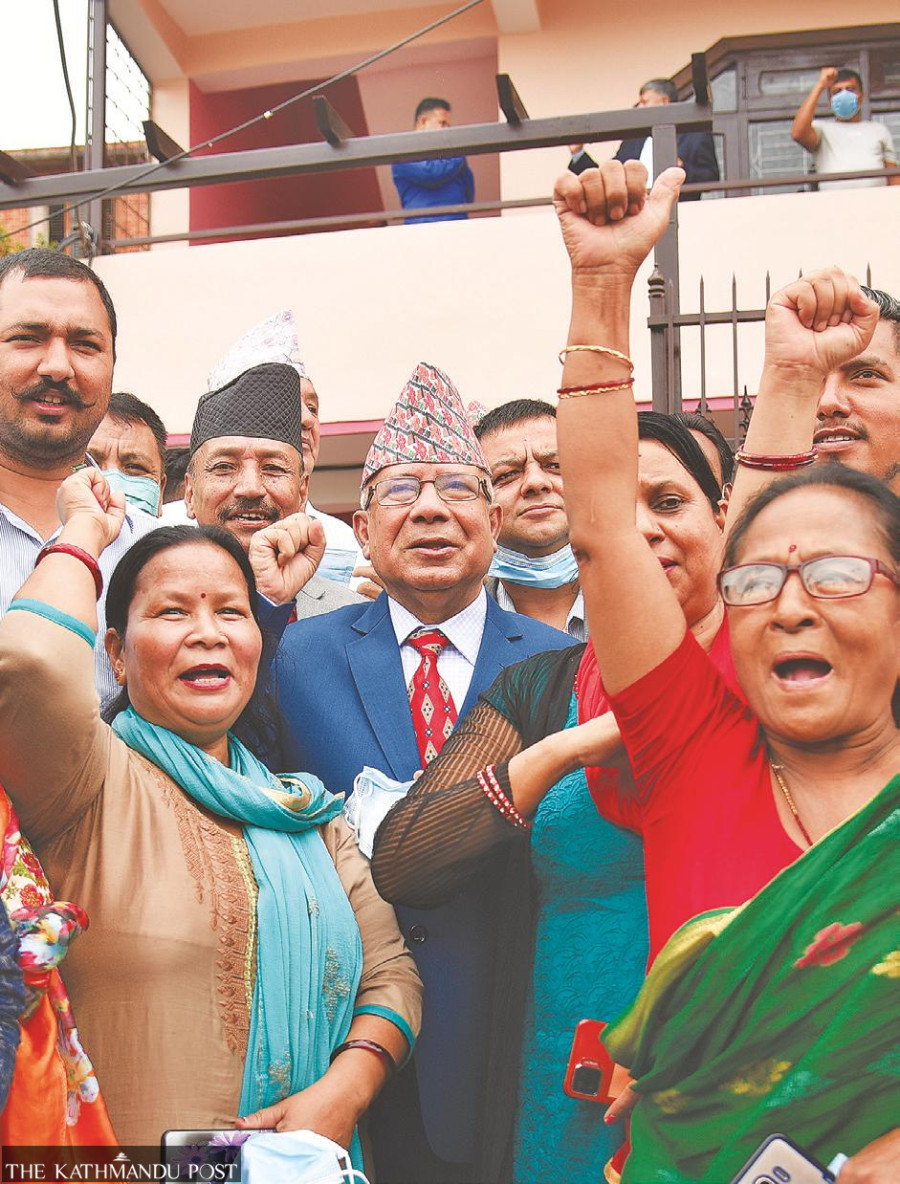Politics
Unified Socialist finds itself in a tight spot
The party, a member of the five-party ruling coalition, has a weak organisational base and lacks popular agenda, observers say.
Nishan Khatiwada
The CPN (Unified Socialist) is part of the five-party ruling coalition, which has decided to fight the November elections under an alliance, but it finds itself in a tight spot.
The 11-member task force formed by the ruling coalition has yet to find a concrete modality on seat-sharing, even as they are working on four criteria. A meeting of the task force last week worked out four criteria— seats will be allocated to each party based on their performance in the first-past-the-post seats and proportional representation in the 2017 elections, performance of individual party in last May’s local elections, and “priority” will be given to top leaders of the parties.
The Unified Socialist’s problem is it did not exist during the 2017 elections, as it was formed in August last year after splitting from the CPN-UML. Its performance in May 13 local elections was dismal—the party won just 20 units. It was behind all other partners of the ruling coalition, except the Rastriya Janamorcha.
The party is now eyeing at least 25 seats for the upcoming House of Representatives elections slated for November 20. The rationale behind demanding 25 seats appears to stem from the fact that the Unified Socialist’s current strength in the House is 23—the lawmakers who deserted the UML. Of them, only 13 were elected directly.
Observers say the Unified Socialist faces a multitude of challenges, as it is weak organisationally and lacks bargaining power.
Hari Roka, a political commentator, says the Unified Socialist lacks organisational strength to gain bargaining power in the coalition.
“Its top leaders themselves are unclear about the party ideology. To contest elections, a party must have a clear agenda, its leaders need to have a good public image, and the organisation should have superior ability to mobilise the cadres, but the party is weak in all these respects and also lacks strong bargaining power,” he told the Post.
After the results of the May elections were out, the party lashed out at the Nepali Congress and the CPN (Maoist Centre). Party leaders even warned the Congress and the Maoist Centre that they would have to pay a price if the Unified Socialist’s strength was undermined. But the party has no option than to tag along the coalition, and it is even considering unification with the Maoist Centre.
A few days ago, the party even formed the ‘Party Unity Coordination Committee’ to explore unification with the Maoist Centre. Even though the Maoist Center, Unified Socialist, and the Bamdev Gautam-led Nepal Communist Party-Unity National Campaign have been discussing a possible communist alliance, no concrete results have been seen yet.
The CPN (Unified Socialist) leadership, however, has continued to put up a brave face in the public.
Speaking at a function of the Youth Association Valley Special Committee, party chair Madhav Nepal said the party has emerged strong nationwide.
“Now we have become a national power. We have a presence in [all] 6,743 wards,” he said.
Interacting with journalists on Sunday at the Gautam Buddha International Airport, Unified Socialist’s senior leader Jhala Nath Khanal said the ruling coalition will proceed in a coordinated manner and will sweep the elections.
Data from the local elections show the Unified Socialist has leading votes in only one constituency—the constituency of Madhav Nepal in Rautahat-1.
The major challenge for the party is to get the national party status as a party needs to win one seat under the first-past-the-post system and 3 percent of the total valid votes under the proportional representation system for the recognition. The party garnered only a little over 3 percent votes in the last local elections, though it fought with the support of the ruling coalition partners in many places.
Party chair Nepal, meanwhile, has been instructing party leaders and cadres to work to garner more proportional representation votes.
Rajendra Maharjan, a political analyst, says the party is in a dilemma as it has weak bargaining power in the ruling coalition.
“It has a hope to exercise more power and bargain seats in the ruling coalition, while it is also thinking of an alliance with communist forces for a check and balance and to increase its bargaining power,” he said. “The efforts for a communist alliance could be a strategy to pressure the Nepali Congress and demand more seats.”
According to Maharjan, in some constituencies, the Unified Socialist can play some role in challenging and probably defeating the UML, so the Congress also needs it. The major problem, however, lies within the party’s organisations.
“The party is not completely organised yet. The organisational structure is in its nascent stage and not so strong, which is a major challenge for the party in the upcoming polls,” Maharjan told the Post, adding that the party lacks its own ideology to prove its unique existence.




 14.12°C Kathmandu
14.12°C Kathmandu














